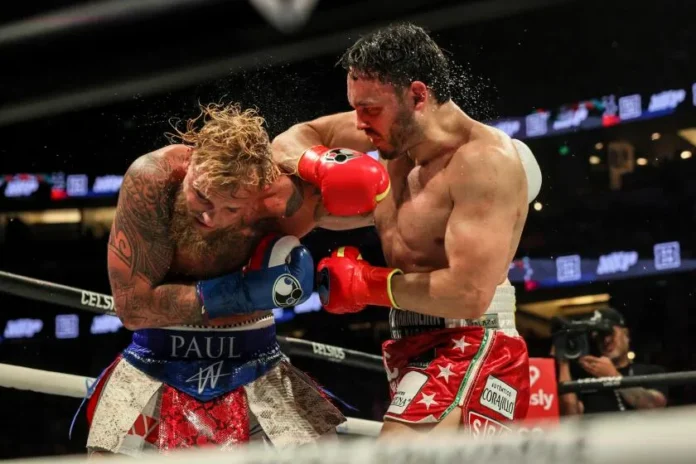
Case Intel
- U.S. immigration agents arrested Chávez Jr. days after his June 28 loss to Jake Paul; he was deported in August and immediately taken into custody in Mexico.
- Mexico’s president confirmed the deportation; records show he’s now held in a federal facility in Hermosillo, Sonora.
- Because DHS alleges visa fraud/misrepresentation, Chávez Jr. likely faces a lifetime inadmissibility bar to the U.S., on top of post-removal bars—waivable only in narrow, discretionary cases.
By Samuel Lopez – USA Herald
Julio César Chávez Jr.’s summer went from boxing marquee to legal crucible in weeks. After dropping a unanimous decision to Jake Paul on June 28 in Anaheim, the former WBC middleweight champion was arrested by U.S. Immigration and Customs Enforcement on July 2 for overstaying a visa and allegedly lying on a green-card application. In mid-August, he was deported to Mexico—where authorities immediately arrested him on organized-crime and arms-trafficking allegations—and transferred him to a federal lockup in Hermosillo, Sonora.
From Studio City Arrest to Sonora Custody
ICE’s July 2 detention came just four days after the Paul fight. U.S. officials said Chávez Jr. entered on a B-2 tourist visa in 2023 that later expired; he is also accused of material misrepresentation related to a green-card filing. “ICE detained [him] and is processing him for expedited removal,” DHS said at the time. U.S. Department of Homeland Security
On August 19, Mexican President Claudia Sheinbaum publicly confirmed the deportation, telling reporters, “I understand he was deported… they told us he will come to Mexico.” He was turned over at Nogales and moved to a federal facility in Hermosillo.
What Mexico Alleges
Mexico’s National Arrest Registry and statements from officials indicate Chávez Jr., 39, faces accusations tied to organized crime and trafficking of firearms, ammunition, and explosives. Prosecutors say the investigation began in 2019, and a warrant was issued in 2023—well before his return. He is alleged to have ties to the Sinaloa Cartel, which the United States designated a Foreign Terrorist Organization earlier this year. Chávez’s family and legal team deny the allegations; Mexico’s attorney general’s office has not commented in detail. State Department
Defense and Due Process
Chávez Jr.’s camp has pushed back, disputing any cartel affiliation and emphasizing he’ll contest the allegations in court. Reuters notes denials from his family and counsel, and reporting indicates Mexico’s federal prosecutors have yet to lay out full evidentiary details publicly. As with any criminal proceeding, he is presumed innocent unless proven guilty. Reuters
Why He May Never Re-enter the United States
The immigration implications are severe:


